All Formats & Editions
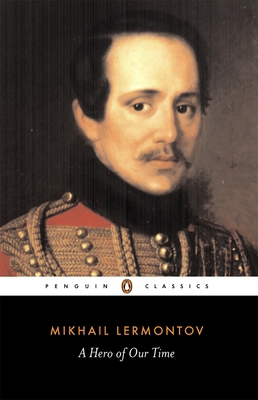
A Hero of Our Time
The first example of the psychological novel in Russia, A Hero of Our Time influenced Tolstoy, Dostoyevsky, and Chekhov, and other great nineteenth-century masters that followed. Its hero, Pechorin, is Byronic in his wasted gifts, his cynicism, and his desire for any kind of...

A Hero of Our Time
A Hero of Our Time is a novel by Mikhail Lermontov, written in 1839 and revised in 1841. It is an example of the superfluous man novel, noted for its compelling Byronic hero (or anti-hero) Pechorin and for the beautiful descriptions of the Caucasus.Mikhail Lermontov also wrote...
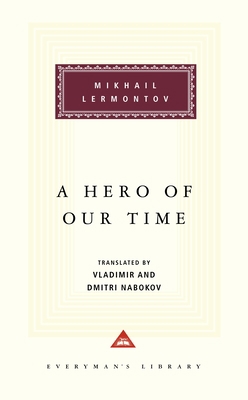
A Hero of Our Time: Introduction by T. J. Binyon
In its adventurous happenings-its abductions, duels, and sexual intrigues- A Hero of Our Time looks backward to the tales of Sir Walter Scott and Lord Byron, so beloved by Russian society in the 1820s and '30s. In the character of its protagonist, Pechorin-the archetypal Russian...
![A Hero of Our Time [Russian] 1908478535 Book Cover](https://i.thriftbooks.com/api/imagehandler/l/7D8CFD0C58E86473F693E48A39C9EC8D779C8644.jpeg)
A Hero of Our Time [Russian]

A Hero of Our Time: A Classic Russian Psycholog...
Annotated Content This edition has been annotated with the following unique content. Historical Context Detailed 19th Century Analysis "I was ready to love the whole world, but no one understood me, and I learned to hate." A Hero of Our Time was written by Russian novelist Mikhail...
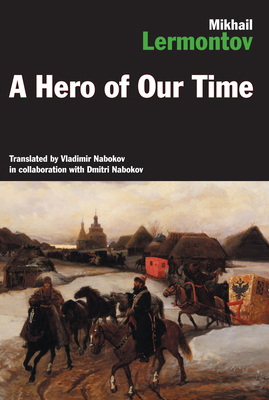
A Hero of Our Time
The first major Russian novel, A Hero of Our Time was both lauded and reviled upon publication. Its dissipated hero, twenty-five-year-old Pechorin, is a beautiful and magnetic but nihilistic young army officer, bored by life and indifferent to his many sexual conquests. Chronicling...
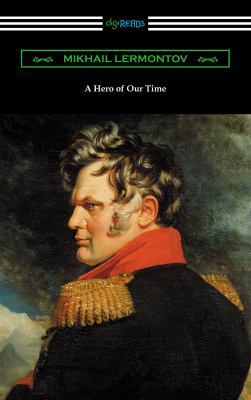
A Hero of Our Time (with an Introduction by Geo...
Mikhail Lermontov's pioneering psychological novel, "A Hero of Our Time", is probably his most impactful work, one which influenced the works of other great Russian authors such as Dostoyevsky and Tolstoy. The novel's narrative is the story of Pechorin a young officer in the...
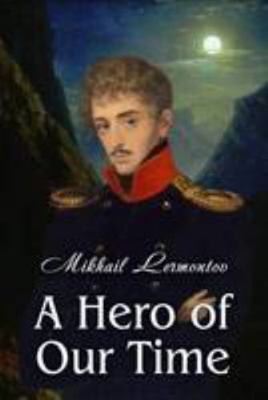
A Hero of Our Time
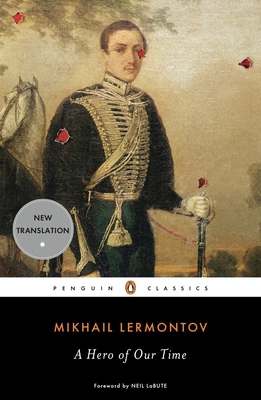
A Hero of Our Time
A brilliant new translation of a perennial favorite of Russian literature
The first major Russian novel, A Hero of Our Time was both lauded and reviled upon publication. Its dissipated hero, twenty-five-year-old Pechorin, is a beautiful and magnetic...
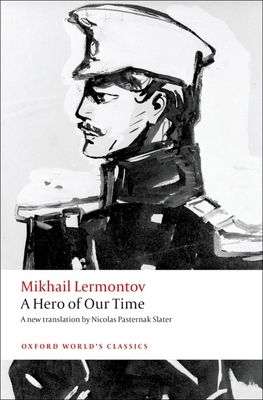
A Hero of Our Time
"After all that - how, you might wonder, could one not become a fatalist?" Here is a fine new translation of the first great Russian novel, A Hero of Our Time, which brings tales of Romantic adventure to a new pitch of intensity and reflection. Lermontov's...
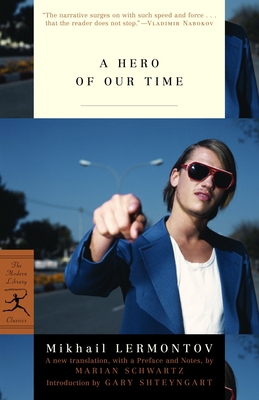
A Hero of Our Time
In its adventurous happenings-its abductions, duels, and sexual intrigues- A Hero of Our Time looks backward to the tales of Sir Walter Scott and Lord Byron, so beloved by Russian society in the 1820s and '30s. In the character of its protagonist, Pechorin-the archetypal Russian...

A Hero of Our Time
A Hero of Our Time is a work by Mikhail Lermontov now brought to you in this new edition of the timeless classic.
![Russian Classics in Russian and English: A Hero... [Russian] 095640104X Book Cover](https://i.thriftbooks.com/api/imagehandler/l/9FBD47A1B1467EC1B0F403123764A89B40DE283C.jpeg)
Russian Classics in Russian and English: A Hero... [Russian]
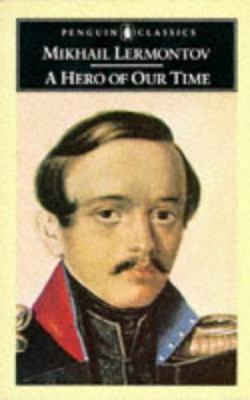
A Hero of Our Time
In its adventurous happenings-its abductions, duels, and sexual intrigues-"A Hero of Our Time" looks backward to the tales of Sir Walter Scott and Lord Byron, so beloved by Russian society in the 1820s and '30s. In the character of its protagonist, Pechorin-the archetypal Russian...
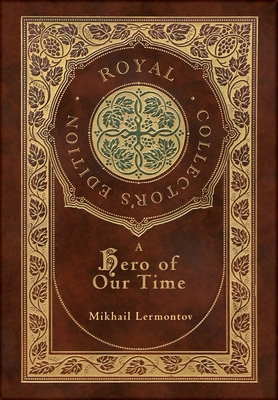
A Hero of Our Time (Royal Collector's Edition) ...
The beautiful Circassian princess Bela is kidnapped by a man named Azamat, who trades her for a horse. She is taken to the home of Pechorin, a man who treats women as an incentive for endless conquests and does not consider them worthy of any particular respect. After living...
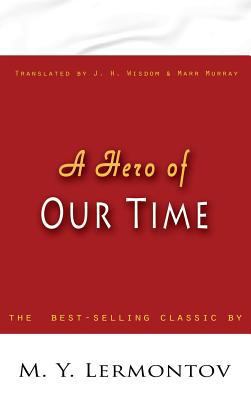
Hero of Our Time
Novel by Mikhail Lermontov, published in Russian in 1840 as Geroy nashego vremeni. Its psychologically probing portrait of a disillusioned 19th-century aristocrat and its use of a nonchronological and multifaceted narrative structure influenced such later Russian authors as...
![Geroy nashego vremeni - Гер&#... [Russian] 1910880094 Book Cover](https://i.thriftbooks.com/api/imagehandler/l/8D322BE1510AE994AA26D917C77FA78F7135441C.jpeg)
Geroy nashego vremeni - Гер&#... [Russian]
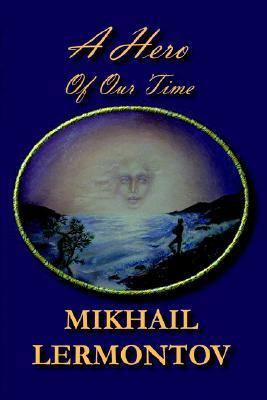
A Hero of Our Time
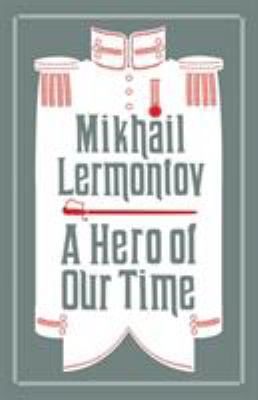
A Hero of Our Time and Princess Ligovskaya: New...
On his travels through the wild mountainous terrain of the Caucasus, the narrator of A Hero of Our Time chances upon the veteran soldier and storyteller Maxim Maximych, who relates to him the dubious exploits of his former comrade Pechorin. Engaging in various acts of duelling,...

A Hero of Our Time
All the luggage I had in my cart consisted of one small portmanteau half filled with travelling-notes on Georgia; of these the greater part has been lost, fortunately for you; but the portmanteau itself and the rest of its contents have remained intact, fortunately for me. As...

A Hero of Our Time
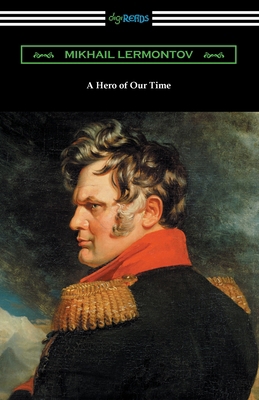
A Hero of Our Time
![Junak Naseg Doba [Croatian] 1523328312 Book Cover](https://i.thriftbooks.com/api/imagehandler/l/EF9186EC1540B5BA30024BEDA83D48C9517EB4BE.jpeg)
Junak Naseg Doba [Croatian]
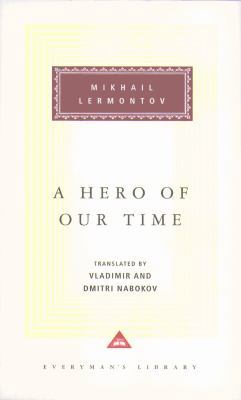
A Hero Of Our Time

A Hero of Our Time
Novel by Mikhail Lermontov, published in Russian in 1840 as Geroy nashego vremeni. Its psychologically probing portrait of a disillusioned 19th-century aristocrat and its use of a nonchronological and multifaceted narrative structure influenced such later Russian authors as Fyodor...



